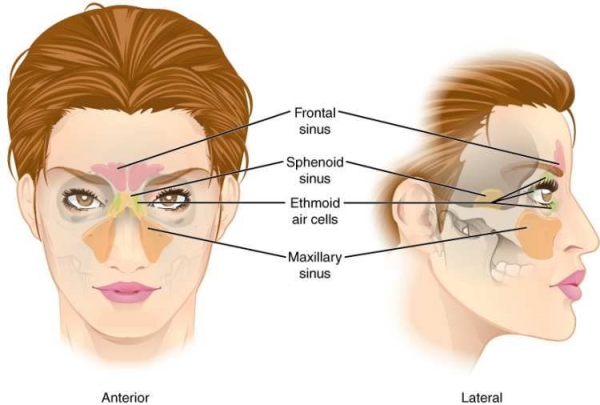A commonly Googled complaint: waking up with a stuffy nose, pressure around the eyes, or even a wheezy chest. Here’s why you may be waking up congested!
Head congestion vs chest congestion
It’s important to diagnose the origin of your congestion, as this can help to suggest the wider causes.
A build-up of mucus in the nostrils, throat, and/or sinuses can create a feeling of blockage and difficulty breathing. It can also cause the blood vessels in those areas to become inflamed, compounding a sense of pressure. This is head congestion, which is more often caused by common colds, dry air, and seasonal allergies.
Chest congestion has a greater variety of causes but is usually due to the presence of mucus or phlegm in the vascular system. When the lungs react to an allergen or infection, mucus membranes begin to overproduce fluids, which remain in the lungs and leave you feeling constricted, wheezy, and with a heaviness in the chest. Chest congestion is mostly caused by viral infections, particulate allergies (i.e. mold), and persistent coughs.
Your sinuses: Explainer
You might be surprised at how extensive (and mysterious) your sinus system actually is. Spanning from your forehead to below your nose, the sinuses are a series of hollow, mucus-lined, but mostly empty cavities in the skull.
 According to WebMD, the purpose of the sinus system is still unknown, with theories claiming a function in speech as well as conditioning the air we breathe. Sinus congestion occurs when the lining of the sinus becomes inflamed and reacts by increasing its mucus production.
According to WebMD, the purpose of the sinus system is still unknown, with theories claiming a function in speech as well as conditioning the air we breathe. Sinus congestion occurs when the lining of the sinus becomes inflamed and reacts by increasing its mucus production.
Polluted & dry air
When the cause of morning congestion is not obvious, the culprit is often general air quality. Air that’s too dry contributes to an inhospitable cocktail for your nose and throat, including dehydration, bacteria, and literal damage to the cilia—the filtrating lining of your airways
Sinus surgeon Dr. Garrett Bennett describes dry sinuses as at higher risk of infection, being 50% more likely to attract sinusitis-causing bacteria due to the dry air being a more efficient carrier of debris and allergens.
Forced-air heating systems are regularly behind over-dry air in homes, although changes in weather fronts can also cause abrupt shifts to your indoor climate.
Likewise, polluted air contains a greater amount of inhalable particles and irritants—possibly even providing a vector for bacteria—all increasing the likelihood of a reaction. Even seemingly well-ventilated homes can pool low quality air, meaning that your congestion might be due to a currently unnoticed air quality issue.
Common allergies: Top 5
Sometimes, the cause of morning congestion is more obvious. The presence of allergens in your home can be easily detected through a process of isolation. If your symptoms improve after the removal of one or more of these allergens, consider yourself to have a sensitivity to the following common irritants:
Also consider: Tension headaches
If the sinus issues you’re experiencing are more to do with pressure and stiffness than a runny nose and scratchy throat, then it’s worth considering whether muscle tension might be behind your congestion.
Thanks to hours spent craning our necks at laptop screens or study materials, many of us go to bed having subjected the muscles and tendons in our necks to hours of repetitive postures. Throughout the night, this can cause the muscles to tighten, putting pressure on the head and face, and creating the feeling of sinus pain in the morning.
Summary
- While congestion is usually associated with a blocked nose, headache, and the sinus system, working out whether chest congestion is also present can help to suggest probable causes.
- If there’s no obvious allergen present in your sleep environment, you may be suffering from congestion due to poor air quality—either dryness or pollution
- As for allergies, pollen, dust, hair, and mold are the most common culprits for morning symptoms, as they can easily build up in the bedroom
- For those who are suffering more with tension and pressure than mucus issues, neck tightness may be contributing. Try some tension easing stretches to relieve some of the pressure in your face and head.





